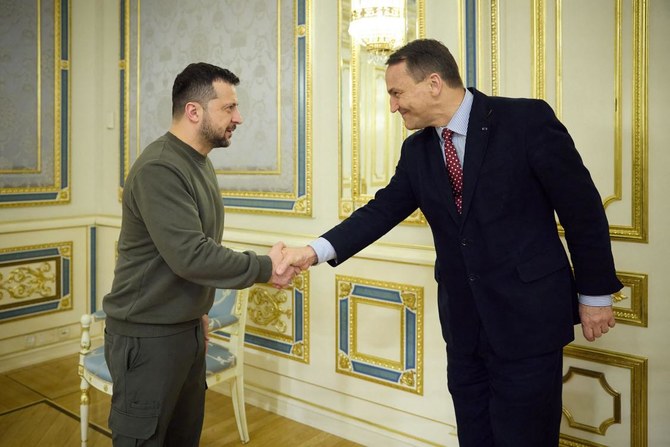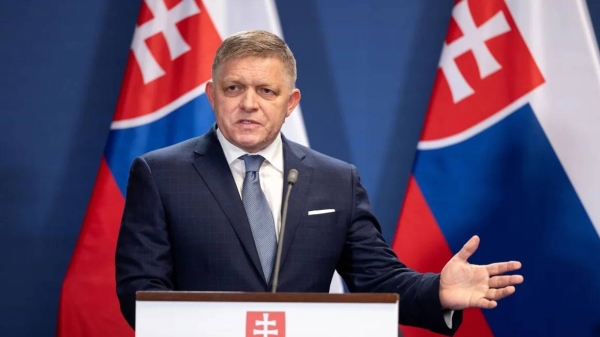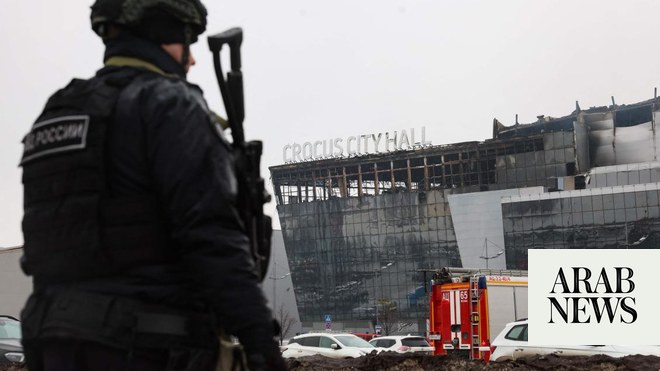
In his novel The White Guard, Mikhail Bulgakov painted an evocative portrait of his childhood home. Inside, there was a Dutch stove blazing with heat, a piano and a library, and cream-coloured curtains. The family’s first-floor apartment was located in “a two-storey house of strikingly unusual design”. In winter, the snow topping the roof resembled “a White general’s fur cap” – a reference to the anti-Bolshevik White movement.
But Bulgakov’s house in Kyiv is now at the centre of a bitter public dispute. In Soviet times it became a literary museum. Ukraine’s national writers’ union has called for the museum at number 13A Andriivskyi Descent – a historic cobbled street linking the upper town with the district of Podil, on the banks of the Dnipro River – to be closed down.
It cites Bulgakov’s well-known antipathy to Ukrainian nationalism and the “horror, death and destruction” that Russia is currently inflicting on Ukraine. According to the union, Bulgakov “hated” the idea of Ukrainian statehood and “glorified” the Russian tsar and monarchy. He also “smeared” Ukrainian nationalists including Symon Petliura, whose troops entered Kyiv in 1918, it says.
Set amid the tumultuous events of that year, The White Guard describes how Petliura’s forces besieged the capital. Defending it was a disorganised group of White officers including the fictional Turbin brothers. The Turbins are loosely based on Bulgakov and his family. He wrote the novel in the early 1920s. It was only published in full in 1966 after his death.
The debate over Bulgakov’s cultural legacy began in 2015, after Moscow annexed Crimea and initiated a bloody war in the eastern Donbas region. In a scathing essay, the writer Oksana Zabuzhko described his work as “propaganda literature”. She proposed renaming the museum after Vasyl Listovnych, Bulgakov’s downstairs neighbour who owned the house.
The Bolsheviks executed Listovnych when they swept into Kyiv. Bulgakov depicts his landlord in The White Guard as an “unpleasant” miser and “cowardly engineer”. “You should at least know Ukrainian culture. Don’t confuse owners and tenants,” Zabuzhko wrote. She added: “It’s time for us, dear Kyivans, to at least hang a memorial plaque for a start to Vasyl Listovnych.”
February’s invasion has prompted a widespread re-evaluation of Russian monuments and street names. Some have been removed, including a memorial plaque to Bulgakov outside Kyiv University, where the writer studied medicine. The culture minister, Oleksandr Tkachenko, said this process was not “de-Russification”. Instead, he argues, it is about “overcoming the consequences of Russian totalitarianism”, with cases decided after consultation.
The minister has pointed to the way in which the Kremlin has used Russian culture as a “weapon of war”. In Kherson – the southern city liberated by Ukraine in November – Russian invaders hung banners celebrating Pushkin, Russia’s leading poet. They have banned the Ukrainian language, removed Ukrainian books from schools and libraries, and used explosives to demolish busts of Ukraine’s national poet, Taras Shevchenko.
Speaking in September, Tkachenko rejected calls to shut down the Bulgakov museum. He noted the anti-Ukrainian opinions that offended the writers’ union were “dialogue” spoken by fictional characters at the beginning of the 20th century, during what he called a “liberation struggle”. “I think the museum is not to blame. It definitely shouldn’t be touched,” he said.
The museum’s director, Lyudmila Gubianuri, has also hit back against criticism, calling Bulgakov “a man of his time”. “He was born and lived in the Russian empire. Bulgakov had an inherent imperial mindset, but neither he nor his family were ever Ukrainophobes,” she stressed. “Bulgakov did not believe in the reality of an independent Ukraine, like quite a lot of people at that time.”
She continued: “That’s why we can’t consider him a Ukrainian writer, although he was born in Kyiv and lived here for most of his life. But Bulgakov’s work is definitely part of Ukrainian cultural space.” His sympathies – in The White Guard and in his novel The Master and Margarita – were “metaphysical” rather than “political”, she said.
Bulgakov’s English translator Roger Cockrell described him as a “Russian writer trapped in Soviet space”. Bulgakov’s relationship with Stalin was “highly complex”, he said. The Soviet leader admired the writer’s plays including The Days of the Turbins, based on The White Guard. But he refused to allow Bulgakov to travel abroad to Rome and Paris, and stopped him after 1925 from publishing prose. “Bulgakov certainly didn’t like Stalin,” Cockrell said.
The White Guard was neither autobiography nor history, he added. “It’s a visionary novel springing from a highly original and creative imagination,” he suggested, adding it would be a “shame” if the museum was forced to close. Cockrell said he had devoted much his life to Russian literature. He recognised its greatness coexisted with the “appalling horribleness” of Vladimir Putin. “There are two Russias,” he claimed.
Other observers have argued there is no meaningful distinction. Olesya Khromeychuk, the director of the Ukrainian institute in London, said Russian writers traditionally portrayed Ukrainians as “cunning, silly and uncultured”. “There is a constant othering of them and other non-Russians,” she said, adding: “I would encourage people to read Russian literature critically.”
Khromeychuk – the author of a memoir about her brother, who was killed in 2017 fighting with the Ukrainian army – said Moscow had repeatedly tried to wipe out Ukrainian culture. She cited members of the Ukrainian avant garde who were executed in the 1920s and 1930s, and the poet and dissident Vasyl Stus, who perished two generations later – in 1985 – in a Soviet labour camp.
“There is so much anti-imperialist Ukrainian literature people don’t know about. You can start with Shevchenko and Lesya Ukrainka [the feminist writer and poet],” she said.












